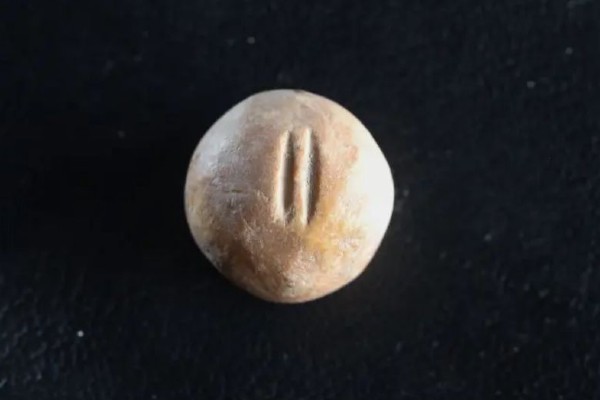The Book of Deuteronomy (35: 13-16) sharply criticizes the use of dishonest weights, calling them an “abomination.”
By David Hellerman, World Israel News
Hebrew University archaeologists digging in Jerusalem’s Old City uncovered a highly unusual trading weight from the First Temple period. Experts believe the weight, called a geirah, was used to cheat traders.
Only one other geirah has ever been found in Israel.
This particular geirah, made from a reddish-colored limestone, measured 14 mm. in diameter and 12 mm. in height and had engravings implying that it weighed two geirah, or 0.944 grams. But when researchers weighed the geirah, they found it weighed at least 3.61 grams — three times what is should have weighed.
According to Hebrew University researchers Eli Shukron and Hagai Cohen Kolonimus, this geirah was apparently used to defraud merchants.
“The Bible indicates that the problem of weight deception is nothing new. Merchants cheated and held separate heavy and lightweight systems and used them when buying or selling,” Shukron and Kolonimus explained.
In the Book of Leviticus (19:35-36) is the Biblical command, “You shall not commit a perversion of justice in measures of length, weight or volume. You shall have correct scales, correct weights, correct dry measures and correct liquid measures, I am God your God who brought you from the land of Egypt.”
The Book of Deuteronomy (35: 13-16) sharply criticizes the use of dishonest weights, calling them an “abomination,” while promising long life to those who use honest weights and measures.
Dishonest weights are also referred to in Proverbs (20:23), saying “The Lord detests differing weights, and dishonest scales do not please Him.”
The excavation’s full findings are due to published on Friday as part of the book of the City of David Research Conference of the Megalim Institute.





